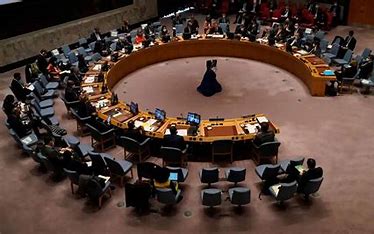United Nation (New York): It’s India’s moment under the global sun as world leaders backed a permanent seat for the world’s fifth-largest economy in the UN Security Council. Spanning north and south, east and west, India’s Prime Minister Narendra Modi and External Affairs Minister S. Jaishankar put the global spotlight on a rising India and a rising Global South at the UN General Assembly, exhorting world leaders to forge a more inclusive and democratic world order.
In a week of intense high-wire diplomacy that included meetings in bilateral, plurilateral and multilateral formats, India’s overarching message was that of peace and dialogue to resolve pressing conflicts such as Ukraine and Gaza and the need for collective efforts to fashion a more inclusive UN and international world order.
Dr Jaishankar interacted with foreign ministers of over 40 countries in the past week on the sidelines of the UNGA, and highlighted the urgency of UN Security Council reforms, the need for inclusive multilateralism and greater prominence of Global South in the international arena.
Dr Jaishankar’s diplomatic engagements at the UN General Assembly showcased India’s unprecedented diplomatic outreach as he held meetings with global leaders ranging from UN Secretary-General Antonio Guterres and UNGA President Philemon Yang to foreign ministers from Europe, Asia, Africa, Caribbean and small island countries. His discussions spanned key global issues such as UN reforms, climate action, and the Ukraine conflict. Jaishankar also engaged with plurilateral groupings like BRICS, G20, BIMSTEC, CARICOM, and CELAC, focusing on enhancing South-South cooperation, connectivity, and trade, solidifying India’s role as a key player in global diplomacy.
ACCELERATING UNSC REFORMS
Accelerating the long-overdue UN Security Council reforms was a cross-cutting theme in his various conversations. “The Security Council needs to reflect the realities of the modern world, not the post-World War era,” Dr Jaishankar stressed in his meeting with UN Secretary-General Antonio Guterres and UNGA President Philomen Yang.
“The Security Council needs to reflect the realities of the modern world, not the post-World War era,” Jaishankar emphasised, echoing India’s long-standing demand for permanent membership.
Dr Jaishankar highlighted that the UNSC’s current structure was out of sync with contemporary geopolitical realities, particularly the rise of the Global South. “We are not asking for special favours, but fairness. A future fit for our world must involve reforming institutions built by our grandparents,” he said, referring to Mr Guterres’ own words. During his discussions with the UNGA President, Jaishankar assured India’s support in advancing her vision for “Unity in Diversity” and “Human Sustainability,” stressing that both concepts align with India’s broader goals for multilateral reform.
BOOST FOR INDIA’S UNSC SEAT
In a major boost for India’s diplomatic stature, the leaders of the US, the UK and France, among others, expressed support for India’s inclusion as a permanent member of the United Nations Security Council (UNSC) gained momentum. UK Prime Minister Keir Starmer joined US President Joe Biden and French President Emmanuel Macron in supporting India’s bid for UNSC seat. In his UNGA address, Mr Starmer strongly backed India’s permanent membership in the UNSC, and stressed the need to reform the Security Council to make it a more representative and effective body. “The Security Council must change to become a more representative body, willing to act—not paralysed by politics,” Mr Starmer said. “We want to see permanent African representation on the Council, Brazil, India, Japan and Germany as permanent members, and more seats for elected members as well.”
GLOBAL SOUTH
India’s commitment to championing the interests of the Global South was a recurring topic throughout Dr Jaishankar’s meetings. During his talk with UNGA President Yang, Jaishankar made it clear that India will continue to be a voice for developing countries, especially in matters of trade, climate action, and poverty eradication. “The Global South cannot be left behind in shaping global governance,” he remarked.
“For decades, the story of global governance has been defined by the Global North,” Dr Jaishankar said at a panel discussion titled “Tiger’s Tale: Crafting a New Development Paradigm.” “But today, the developing world is more than a mere subject of global governance. They have retrieved the power to shape their own story.”
At the BIMSTEC informal meeting, held on the sidelines of UNGA, Dr Jaishankar argued for enhancing physical, digital, and maritime connectivity across the Bay of Bengal region. “Our progress in areas like health, food security, and trade is a testament to how the Global South can rise together,” the minister said, stressing India’s role in fostering development initiatives for neighbouring countries.
PEACE DIPLOMACY
The 79th session of UNGA also saw many world leaders expressing support for India’s role as a peacemaker in festering conflicts such as the Russia-Ukraine war and Gaza crisis. Prime Minister Modi met the leaders of Palestine and Ukraine on the margins of UN and conveyed India’s willingness to promote peace efforts to end these sterile conflicts. There was strong support for India’s bigger role in promoting peace and reconciliation among warring countries, said senior officials. In his speech at the UN Summit of the Future, Prime Minister Modi underscored the importance of unity over conflict, saying: “Success of humanity lies in our collective strengths, not on the battlefield.”
Manish Chand, is CEO, Centre for Global India Insights, a think tank focused on global affairs, and Editor-in-Chief, India Writes Network and India and the World.

